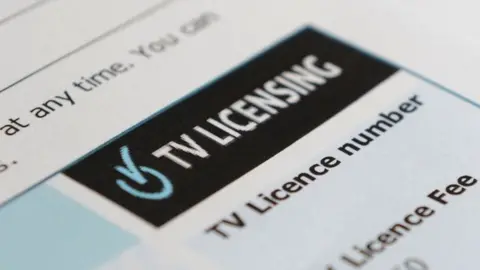BBC licence fee to rise by £3 from April
 PA Media
PA MediaThe cost of the annual television licence fee will increase by £3, from £154.50 to £157.50, from 1 April 2020.
In 2016, the government said the fee would rise in line with inflation every year for five years from 1 April 2017.
The latest increase comes amid debate around the future of the licence fee, after Prime Minister Boris Johnson said in December that it needs "looking at".
The government said last year it would consider whether failure to pay the fee should cease to be a criminal offence.
And it comes a week after Match of the Day host Gary Lineker, the BBC's highest paid presenter, called for the fee to be made voluntary.
There has also been controversy about plans to stop providing free TV licences to most over-75s from 1 June.
Caroline Abrahams, charity director at Age UK, said: "A £3 a year increase to the TV licence fee may not sound much but will be yet another blow to the hundreds of thousands of over-75s who will struggle to afford a TV licence from June."
The new fee works out at £3.02 per week, or £13.13 per month, and pays for BBC services including nine national TV channels, 10 national radio stations plus local radio and websites, as well as the BBC Sounds app and BBC iPlayer.
Outgoing BBC director general Tony Hall said last month that the licence fee "guarantees... commitment to creativity and risk-taking".
A licence is required if you watch or record programmes as they're being shown on TV, or download or watch any BBC programmes on iPlayer.
The government and BBC are to negotiate over what will happen to the level of the licence fee after 2022, after the end of the current agreement to raise the amount in line with inflation every year.

Follow us on Facebook, or on Twitter @BBCNewsEnts. If you have a story suggestion email [email protected].
